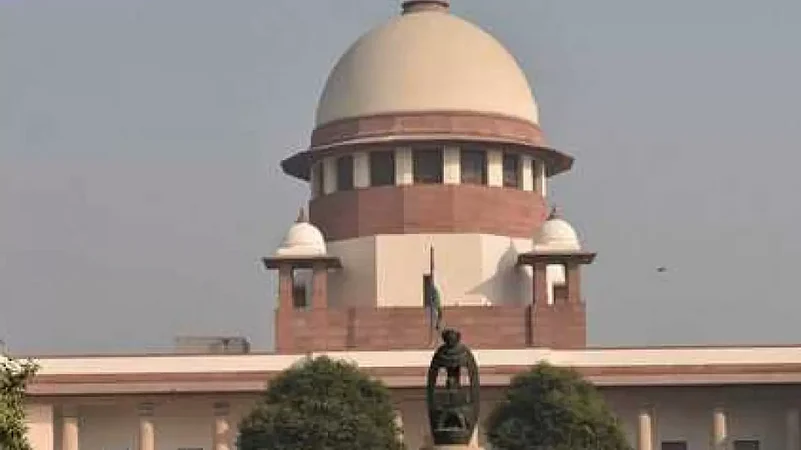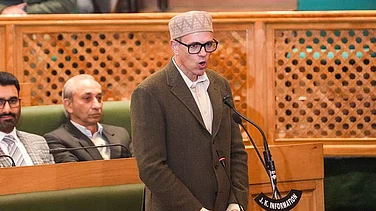In a majority verdict, three out of five judges from a Constitution bench led by Chief Justice U.U Lalit on Monday upheld the constitutional validity of the 10% reservations granted to Economically Weaker Sections (EWS) under the 103rd Constitutional Amendment Act of 2019.
The Chief Justice, along with Justice S Ravindra Bhat dissented, while Justice Dinesh Maheshwari, Justice Bela M Trivedi, and Justice Jamshed Burjor Pardiwala delivered a majority verdict.
On Economic Criteria, 50% Ceiling Limit
Justice Dinesh Maheshwari observed that "Reservations for EWS does not violate basic structure on account of 50% ceiling limit because ceiling limit is not inflexible," Livelaw reported.
Justice Maheshwari also opined that reservations based singularly on economic criteria do not go against the spirit of the Constitution.
This was seconded by Justice Bela M Trivedi, who said that "The impugned amendment has to be treated as an affirmative action by the Parliament for the benefit of EWS class. It cannot be said to be unreasonable." Concurring with Justice Maheshwari, Justice Trivedi declared that the “Amendment cannot be struck down as violating basic structure or being discriminatory.”
In the same vein, Justice Trivedi noted that “Treating EWS as a separate class would be a reasonable classification. Just as equals as unequals, unequals cannot be treated equally. Treating unequals equally violates equality under the Constitution.”
On exclusion of SEBCs
The amendment had also come under challenge for the exclusion of SC/ST/OBCs from EWS reservation quotas, who enjoy separate reservations under Article 15(4) and 16(4) of the Constitution.
In this regard, the bench upheld that creating a separate class of EWS is part of the state’s affirmative action to ensure their advancement, and the “exclusion of SEBCs cannot be said as discriminatory or violative of Constitution.”
‘Reservations should not become a vested interest’
Justice Pardiwala, while concurring with the other two judges, upheld the validity of the 103rd amendment. He has, however, done so with a dash of caution and said that “While concurring with Justice Maheshwari and Bela Trivedi and while upholding the impugned amendment, I have thought it fit to observe ‘Reservation is not an end, it is means, it should not be allowed to become a vested interest.’”
Likewise, Justice Trivedi reiterated that reservation policies should have a “time span” and observed that “At the end of 75 years of independence, we need to revisit the system of reservation in the larger interests of the society.”
Dissenting Judges
CJI U.U Lalit and Justice Bhat struck down the amendment as violative of the basic structure of the Constitution.
Addressing the exclusion of SC/ST/OBCs from EWS reservation benefits, Justice Bhat observed that “Our constitution does not permit exclusion and this amendment undermines the fabric of social justice and thereby the basic structure.” He added that This amendment is deluding us to believe that those getting social and backward class benefit is somehow better placed,” and declared that “by excluding the poor among SC/ST/OBC from economically backward classes, the amendment practices constitutionally prohibited forms of discrimination.”
Justice Bhar has however concurred with the majority opinion that economic reservations per se are not violative, but the exclusion of the socially and educationally backward classes is violative of the equality code enshrined in the constitution, Livelaw reported.
To this end, Justice Bhat observed that “Introducing reservation on economic criteria is permissible. But exclusion of backward classes among SC/ST/OBC on the ground that they have enjoyed benefits is arbitrary,” and struck down Article 15(6) and 16(6) for violating the constitution.
CJI Lalit has said that “I have concurred with the view taken by Justice Bhat in its entirety,” with the EWA quota being upheld with a 3:2 majority.
(Further details awaited)


























